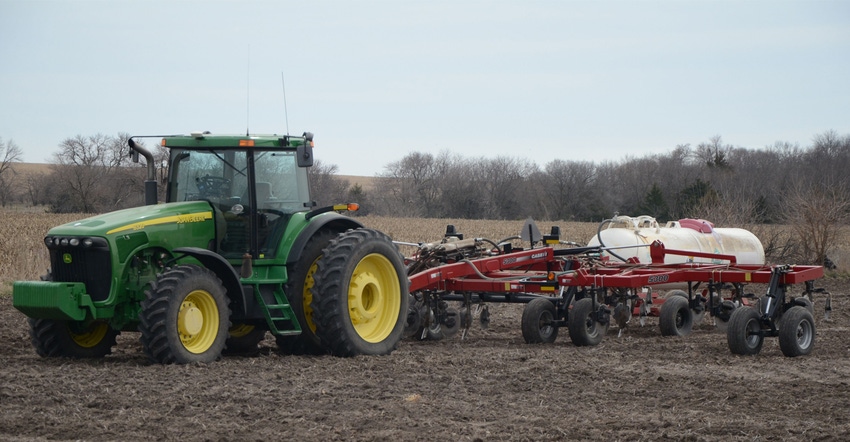October 12, 2021

The Clean Water in Iowa Starts Here tour reported live earlier this month to share important messages regarding fall nitrogen management. Michael Castellano, Iowa State University professor of agronomy who is also the William T. Frankenberger professor of soil science, spoke about research his lab has done over the last 30 years concerning nitrogen following a drought. Based on soil nitrate levels and precipitation of prior years, research shows there are currently higher-than-normal N levels in Iowa soils due to the ongoing drought.
"Based on Iowa State University research, we know that during a drought year, the soil retains more nitrogen for a number of reasons," Castellano said. "Not only does the crop utilize less nitrogen, but there is also a major reduction in the amount of nitrogen lost to leaching and denitrification.
"As a result, we encourage farmers to have their soil tested before making fall application decisions that not only impact the environment, but also their profitability," he added.
Shawn Richmond, environmental services director at the Agribusiness Association of Iowa, encouraged farmers to work with their ag retail partners to consider soil testing for N, reduce rates of fall fertilizer application and consider a split rate of spring applications instead.
"Fertility decisions are always important, but especially so following drought conditions. Taking steps this fall like soil tests for nitrates to inform fertility decisions can help with meeting goals for next year's crop needs," Richmond said.
Fertilizer management also key in drought year
Mike Naig, Iowa Secretary of Agriculture, also stressed the importance of fertilizer management in a drought year. In addition to making smart nutrient management decisions, he encouraged Iowa farmers to use cover crop cost-share programs.
"Cover crops can help scavenge and hold onto excess nitrogen in the soil, so it's available for the following crop instead of being lost through runoff or leaching," said Paige Frautschy, Iowa Agriculture program director at The Nature Conservancy. "Farmers and their advisers can learn more about conservation practices, like cover crops, that can make their operations more efficient and resilient by visiting 4RPlus.org."
In addition to the important water quality and conservation implications of fall N decisions this year, high fertilizer prices make a compelling economic case as well.
"Increasing nutrient use efficiency through improved fertilizer management is a smart thing for farmers to do every year — but in drought years like 2021, it's imperative," said Sean McMahon, executive director of the Iowa Agriculture Water Alliance. "Farmers have a great opportunity this year to save money by reducing fall fertilizer applications, considering the already higher-than-normal nitrogen levels in our soils due to the ongoing drought. That's a win-win for farmers' profitability and improving our water quality."
Source: 4R Plus and Iowa Agriculture Water Alliance, which are responsible for the information provided and is wholly owned by the source. Informa Business Media and its subsidiaries aren't responsible for any of the content contained in this information asset.
You May Also Like




